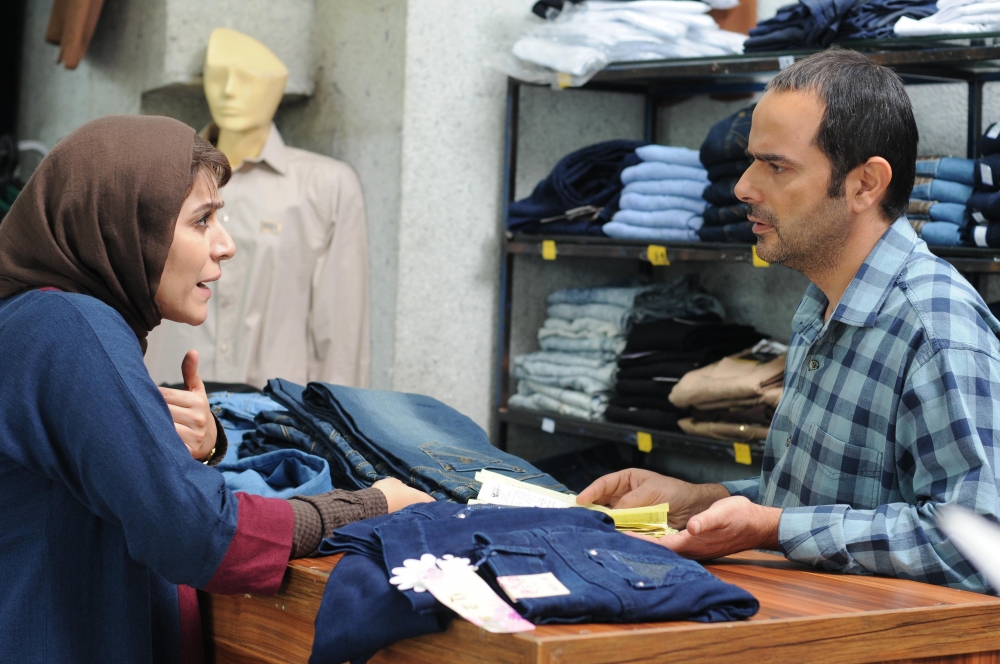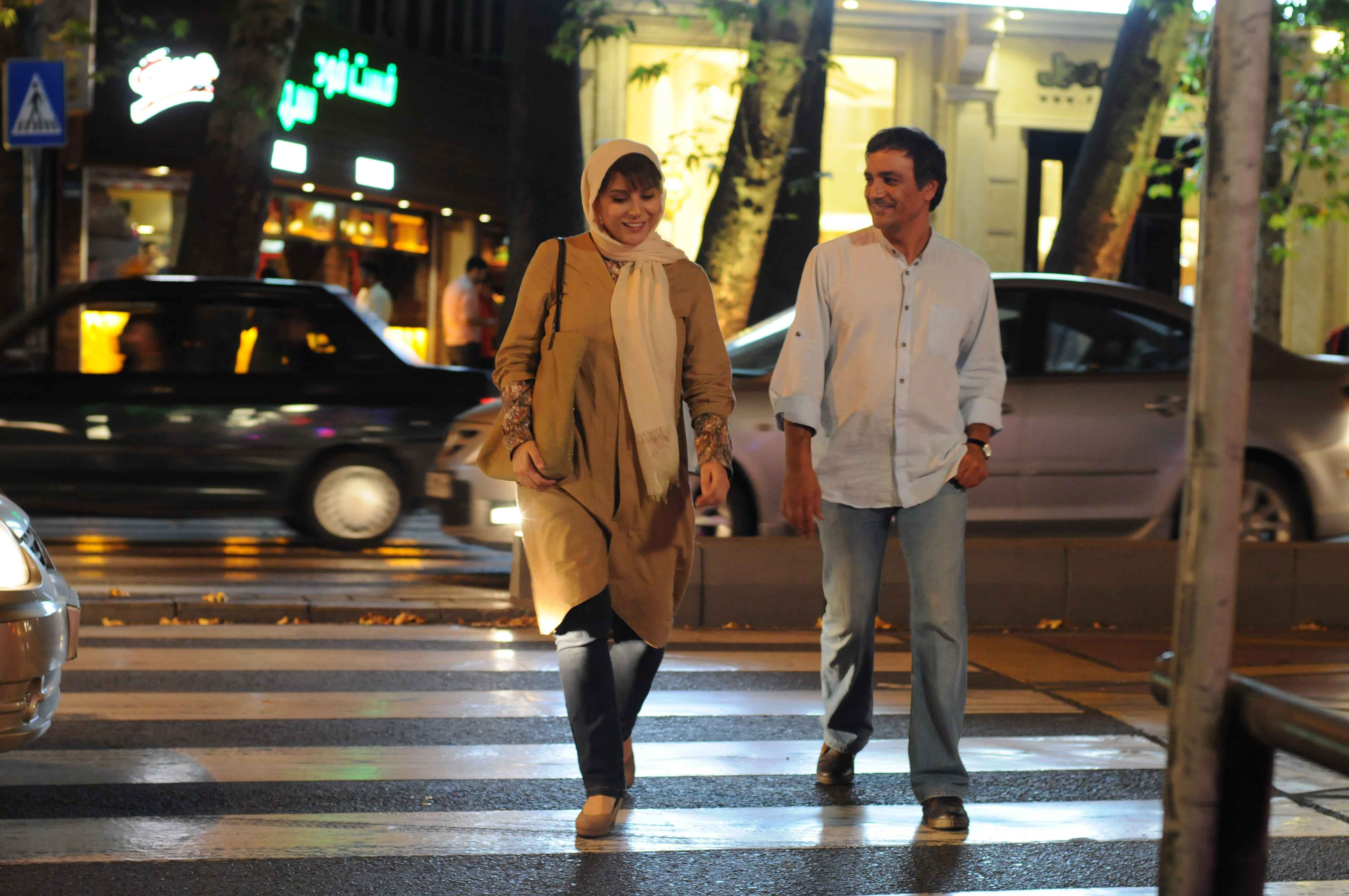Inversion may not be the catchiest of titles, but in the case of Iranian director Behnam Behzadi’s film its associations are multifarious. On the immediate level it refers to the “thermal inversion” that generates the smogs that engulf his location, Tehran, and also direct his story. Meteorologically, the phenomenon happens when a layer of warm air sits over one of cold, preventing it from rising, and trapping pollutants in the atmosphere.
But there’s surely a deeper relevance in this story of family conflict – in particular sibling antagonism – that relates to the position of women in Iranian society, how their assertions of independence can be easily blocked by the society (and not only by the men) that surrounds them. The stand-off in the Earth’s atmosphere compares, at least loosely, with the human oppositions that Behzadi depicts in his film.
It details the struggles to negotiate the variety of complications that life throws up
However, its opening depicts a world in which women are existing rather comfortably on their own terms. Niloofar (Sahar Dolatshahi) lives with her mother Mahin (Shirin Yazdanbakhsh): she is the youngest child, and remains unmarried, while her older brother and sister have their own families. It’s not that she looks after the older woman, who lives a busy and independent life which is curtailed only by her health problems. When the Tehran smog is heavy, Niloofar tries to prevail on her mother to stay at home; the latter insists, almost skittishly, that as long as she has her medicine and oxygen with her, all will be well.
It’s a middle-class environment that allows Niloofar to live an independent life, running the tailoring business that belonged to her late father: she has developed it over more than a decade, and has further plans for expansion. There appear to be no restrictions in her professional world and, unknown to her family, she has renewed contact with a childhood friend who has returned to Tehran from abroad, and their interaction is beginning to look like they are dating. Again, it’s a process in which Niloofar is an equal player.
 When the inevitable happens, and Mahin ends up in hospital, all that looks set to change. The doctor’s prognosis is uncompromising: Mahin must leave Tehran, or the consequences will be fatal. There isn’t so much a family conclave, as a decision, without discussion, by the two married siblings that Niloofar will accompany her, leaving her life and work in Tehran behind. “No husband, no children, so I don’t count?” is her retort, as the family encounters become increasingly confrontational (not least when her brother simply shuts her out of her work premises, to pay off his own debts). The older sister sees it as no less of a transaction: in return for going with the mother, Niloofar will receive an allowance. (Sahar Dolatshahi with Ali Mosaffa, playing her brother, pictured above)
When the inevitable happens, and Mahin ends up in hospital, all that looks set to change. The doctor’s prognosis is uncompromising: Mahin must leave Tehran, or the consequences will be fatal. There isn’t so much a family conclave, as a decision, without discussion, by the two married siblings that Niloofar will accompany her, leaving her life and work in Tehran behind. “No husband, no children, so I don’t count?” is her retort, as the family encounters become increasingly confrontational (not least when her brother simply shuts her out of her work premises, to pay off his own debts). The older sister sees it as no less of a transaction: in return for going with the mother, Niloofar will receive an allowance. (Sahar Dolatshahi with Ali Mosaffa, playing her brother, pictured above)
Yet these loyalties aren’t quite so one-sided. Niloofar’s teenage niece Saba (Setareh Hosseini) implicitly takes the side of her aunt (she can see how her own future might develop). The possibilities of the burgeoning romantic attachment may be tested when certain other dependencies are revealed, but such difficulties can be negotiated (it involves a great deal of to-and-froing on the Tehran mobile network). And, as the matriarch begins to recover she reveals a keener will than anyone had anticipated.
 The elements of drama are strong, and give the film’s closely observed scenes – even when a touch of melodrama slips in, Inversion is still very much a work of realism – their power. It premiered at Cannes last year in the “Un Certain Regard” programme, and the quality of the acting impresses profoundly. Dolatshahi has a paradoxical combination of composure and vulnerability, and her face captivates the camera: she’s matched by the utterly natural Hosseini, the youngest presence on the screen, as well as by the scheming siblings, unsympathetic but still somehow understandable. Such a keen definition of character more than compensates for a budget we assume was modest. (Romantic interest: Sahar Dolatshahi with Ali Reza Aghakhani, pictured above)
The elements of drama are strong, and give the film’s closely observed scenes – even when a touch of melodrama slips in, Inversion is still very much a work of realism – their power. It premiered at Cannes last year in the “Un Certain Regard” programme, and the quality of the acting impresses profoundly. Dolatshahi has a paradoxical combination of composure and vulnerability, and her face captivates the camera: she’s matched by the utterly natural Hosseini, the youngest presence on the screen, as well as by the scheming siblings, unsympathetic but still somehow understandable. Such a keen definition of character more than compensates for a budget we assume was modest. (Romantic interest: Sahar Dolatshahi with Ali Reza Aghakhani, pictured above)
Inversion doesn’t quite fit into the arthouse strand of Iranian cinema that is best known in the West (and it certainly doesn’t belong to the mainstream that dominates the country’s film industry). Possibly, at home, it falls into what's called the “popular art” genre, and its concerns – detailing the struggles to negotiate the variety of complications that life throws up – are close to those of Asghar Farhadi’s recent The Salesman. Both deal with the consequences of a settled life being disrupted. Though European realism might also be another point of reference, Behzadi’s brisk conclusion consciously leaves any such allegiance behind – in a way that feels more accomplished cinematically than it does thematically.
To say that a film opens up a world to us may seem a double-edged compliment. After all, why should we be surprised to recognise patterns of life in Tehran as somehow familiar – even if we think of Iran as “closed” in some way? Surprisingly, I’m drawn to comparisons with Jon Snow’s broadcasts for Channel 4 this week on the Iranian elections, which conveyed something, however briefly, of what life there, in all its contradictions, may be like. For almost an hour-and-a-half Inversion anchors us in Behzadi’s here-and-now. It is no small achievement.
Overleaf: watch the trailer for Inversion

 When the inevitable happens, and Mahin ends up in hospital, all that looks set to change. The doctor’s prognosis is uncompromising: Mahin must leave Tehran, or the consequences will be fatal. There isn’t so much a family conclave, as a decision, without discussion, by the two married siblings that Niloofar will accompany her, leaving her life and work in Tehran behind. “No husband, no children, so I don’t count?” is her retort, as the family encounters become increasingly confrontational (not least when her brother simply shuts her out of her work premises, to pay off his own debts). The older sister sees it as no less of a transaction: in return for going with the mother, Niloofar will receive an allowance. (Sahar Dolatshahi with Ali Mosaffa, playing her brother, pictured above)
When the inevitable happens, and Mahin ends up in hospital, all that looks set to change. The doctor’s prognosis is uncompromising: Mahin must leave Tehran, or the consequences will be fatal. There isn’t so much a family conclave, as a decision, without discussion, by the two married siblings that Niloofar will accompany her, leaving her life and work in Tehran behind. “No husband, no children, so I don’t count?” is her retort, as the family encounters become increasingly confrontational (not least when her brother simply shuts her out of her work premises, to pay off his own debts). The older sister sees it as no less of a transaction: in return for going with the mother, Niloofar will receive an allowance. (Sahar Dolatshahi with Ali Mosaffa, playing her brother, pictured above) The elements of drama are strong, and give the film’s closely observed scenes – even when a touch of melodrama slips in, Inversion is still very much a work of realism – their power. It premiered at Cannes last year in the “Un Certain Regard” programme, and the quality of the acting impresses profoundly. Dolatshahi has a paradoxical combination of composure and vulnerability, and her face captivates the camera: she’s matched by the utterly natural Hosseini, the youngest presence on the screen, as well as by the scheming siblings, unsympathetic but still somehow understandable. Such a keen definition of character more than compensates for a budget we assume was modest. (Romantic interest: Sahar Dolatshahi with Ali Reza Aghakhani, pictured above)
The elements of drama are strong, and give the film’s closely observed scenes – even when a touch of melodrama slips in, Inversion is still very much a work of realism – their power. It premiered at Cannes last year in the “Un Certain Regard” programme, and the quality of the acting impresses profoundly. Dolatshahi has a paradoxical combination of composure and vulnerability, and her face captivates the camera: she’s matched by the utterly natural Hosseini, the youngest presence on the screen, as well as by the scheming siblings, unsympathetic but still somehow understandable. Such a keen definition of character more than compensates for a budget we assume was modest. (Romantic interest: Sahar Dolatshahi with Ali Reza Aghakhani, pictured above)